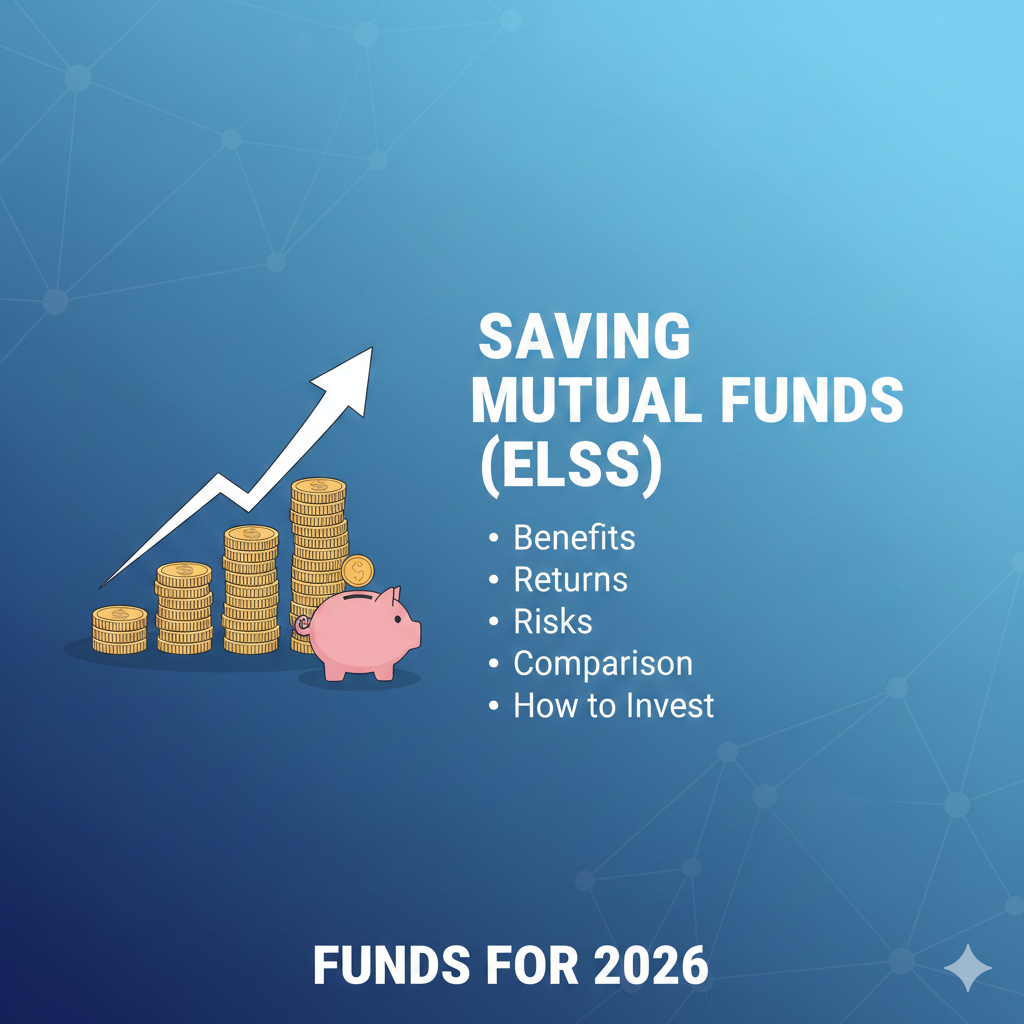What are the risks associated with mutual fund investments?

Introduction:
Did you know that there are more than 5 crore active demat accounts in India, as of 2025?
This massive number of demat accounts is not just a statistic, it is a sign of how investing has become popular in India. And, among the many options available to new investors, mutual funds stand out for their simplicity, diversification, and expert management.
Whether you are a salaried professional or a businessman, just starting out your financial journey, mutual funds offer you a smart way to grow your wealth over time.
However, like any other investment option, mutual funds also come with their own set of risks, and that is what we will discuss today. If you are exploring a mutual fund investment plan for beginners, the first step is making informed choices.
In this article, we will talk about common risks associated with mutual fund investments, and how to manage them, especially with the guidance from the best mutual fund advisor in India.
What is a Mutual Fund?
A mutual fund pools money from multiple investors and invests it in different assets, such as stocks, bonds, or a combination of both. This money is managed by a professional fund manager.
There are different types of mutual funds available in the market, and each fund carries a different level of risk. Some include:
- Equity funds (Stocks)
- Debt funds (fixed-income securities)
- Hybrid funds (mix of equity and debt)
Risks associated with Mutual Funds:
Now, with the basic understanding of mutual funds, let’s talk about the common risks that you need to understand as a beginner to mutual funds.
Market Risk:
Also known as volatility risk, it refers to the possibility that the value of your mutual fund will fall due to changes in the overall market.
Let’s take an example: If your fund invests in stocks, and the stock market crashes due to any unforeseen reason, such as economic slowdown, global event, or geopolitical tensions, your fund value will also decrease, leading to losses.
So, what can be done? Here are some of the ways through which you can reduce the risk:
- Invest for the long term
- Avoid checking fund performance every week
- Diversify your investment across different fund types
Credit Risk:
Credit risk majorly applies to debt mutual funds. If a company or government body that has issued bonds fails to repay the loan or defaults for any reason, your fund loses money. For instance, if your debt fund invests in a corporate bond and that company goes bankrupt, in this case, your investment will also suffer.
But, here is how you can reduce the losses:
- Choose funds with high-credit companies
- Consult the best mutual fund advisor in India
Interest Rate Risk:
This is another risk associated with debt fund investors. This risk occurs when interest rates rise, the value of bonds falls, and so does the Net Asset Value (NAV) of your debt mutual fund. This happens because when newer bonds offer higher interest, the older ones (with lower rates) become less attractive, leading to a drop in price.
However, here is how you can reduce the effect on your investment:
- Stick to short-term debt funds during volatile interest rate periods
- If unsure, you can choose a mutual fund investment plan for beginner created by a certified advisor
Liquidity Risk:
Liquidity risk is the risk that your fund can’t sell its holdings quickly enough, especially during market crises. This might delay your withdrawals or reduce overall fund value. Let’s understand with an example: during covid-19 lockdowns, some debt funds temporarily restricted redemptions due to the lack of liquidity in the bond market.
The liquidity risks can be reduced by following these measures:
- Always keep an emergency fund in a liquid or overnight fund
- Invest in mutual funds wisely, and don’t invest everything you own
Inflation Risk:
As you all know, inflation is a general increase in the prices of goods and services in an economy over a period of time, which erodes the purchasing power of money. If your mutual fund returns less than the inflation rate, you are technically losing on your money.
For example: If inflation is at 6% and your debt mutual fund returns 4%, you are not growing wealth, you are falling behind. But, you can prevent the losses by following these measures:
- For long-term goals, choose equity or hybrid funds, as these have better inflation-beating potential
- Pair your investments with financial goals, such as buying a house, child education, retirement, etc.
Fund Manager Risk:
As mutual funds are actively managed by a fund manager, their skills play a significant role in the performance of your funds. A poor decision by the manager can impact your returns, and a good one can bring fortunes for you. Let’s take an example, if your fund manager bets heavily on a sector that underperforms, the entire fund may suffer, but if he invests in a sector which booms, you can expect amazing returns.
But how can you mitigate this risk, here’s how:
- Check the fund’s consistency over time and across different managers
- Rely on insights from your best mutual fund advisor in India to assess fund manager’s performance
Concentration Risk:
If a mutual fund invests a large portion of money in a particular stock, sector, or theme, it increases the risk, which is known as concentration risk. For example, a tech-based fund may perform well when tech stocks boom, but may crash if the sector faces regulatory issues.
Here is how you can reduce the risk:
- Beginners should avoid sector funds unless they understand the sector well
- Stick to diversified funds as part of your mutual fund investment plan for beginners
Exit Load and Taxation Risk:
There are some funds that charge an exit load if you withdraw before a certain period of time. Also, you may owe capital gains tax depending on when you exit. Many beginners don’t factor in exit loads or tax, which later can eat into their profits.
However, you can reduce the losses by:
- Knowing the lock-in periods and tax rules for each fund
- Planning withdrawals with the help of a professional
Are Mutual Funds Risky for the Beginners?
With so many above-mentioned risks involved with mutual funds, are these funds risky? Well, the answer is NO (provided you understand what you’re getting into).
In fact, mutual funds are considered one of the best ways to start investing. Here are some reasons:
- They are managed by expert fund managers
- They offer diversification
- SIPs help average out market ups and downs
Tips to Manage Risks as a Beginner to Mutual Funds:
Here are some of the practical ways that can help you reduce your risk without compromising on returns:
- Start with SIPs
- Avoid reacting to short-term news and market crashes
- Use a goal-based approach
- Balance equity and debt based on your age and risk tolerance
- Stay invested for a long term
- Work with the best mutual fund advisor in India to get a customized plan
Why You Need a Trusted Financial Advisor?
Investing in mutual funds is easy – there are so many mobile apps, online portals, and influencers for help, but who is offering the right advice? This is where advisors like Mentor Wealth come into picture. Their expert not only recommend top-performing funds, but also help you:
- Understand your goals, income and risk appetite
- Design a portfolio that balances growth and safety
- Monitor, adjust, and reallocate when needed
- Educate you on risks and avoid panic
Conclusion:
Mutual fund investments are a great way to build long-term wealth, but only when you invest with proper understanding and an open mind. You must understand that risks are part of the journey, but they can be managed with the right knowledge and support.
If you are new to investing, and looking for a mutual funds investment plan for beginners, explore Mentor Wealth. They can help you simplify things, protect your capital, and grow your wealth responsibly.

Let’s grow your wealth, together
We’ve Spent 10+ Years Helping Clients
Like You Find Financial Confidence
Insights that empower your investments
Explore expert-written blogs on mutual funds, market trends,
and smart investment strategies
Let's build a wealthy Tomorrow
25+ years of experience helping investors find financial confidence



